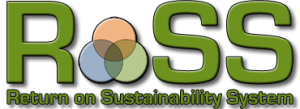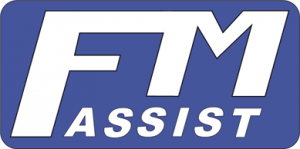FMstar

FMstar (Facility Management with the Help of Semantic Technologies and Augmented Reality”) aims at developing a novel approach towards interconnecting the real and virtual world within complex FM processes. The focus is on the process of maintenance management and acceptance of technical equipment.
For this reason selected FM processes are to be analyzed and optimized and technical innovations to be developed.
This includes semantic technologies in order to interlink distributed knowledge about technical equipment and its context-based analysis. Furthermore, AR technologies are being used for the visual connection between the real and virtual world in order to support decisions within FM processes more efficiently.
PlayFM
 Within the research project PlayFM (Serious Games for IT-based Knowledge Transfer in Facility Management) Serious Game- and Game-Based Learning methods and technologies are applied for the first time to knowledge transfer in FM. The task is to develop a web-based 3D Serious Game “playFM” aiming at various target groups and scenarios.
Within the research project PlayFM (Serious Games for IT-based Knowledge Transfer in Facility Management) Serious Game- and Game-Based Learning methods and technologies are applied for the first time to knowledge transfer in FM. The task is to develop a web-based 3D Serious Game “playFM” aiming at various target groups and scenarios.
playFM shows facility managers how to simulate typical FM activities. A 3D multi-storey building and production hall and related services have to be managed by the player. The player acts like a professional facility manager. It is his or her job to fulfil typical FM tasks, which are posed by staff members or employees of the virtual company.
RoSS
 The research project RoSS (Return on Sustainability System) aimed at defining a usable and relevant set of indicators for sustainability in FM and at developing a web-based software system to monitor and manage them in everyday FM practice.
The research project RoSS (Return on Sustainability System) aimed at defining a usable and relevant set of indicators for sustainability in FM and at developing a web-based software system to monitor and manage them in everyday FM practice.
Certifications on sustainability in building construction have become a necessity for high quality building projects. But also in the field of Facility Management the topic of sustainability proves to be of increasing importance. Products like e.g. “green cleaning” indicate this development and a lot of companies claim the implementation of sustainable measures. Hence it is hard to evaluate and rate the sustainable performance of those measures; but in order to show their effectiveness, sustainable measures need to be quantified. Also there is more to sustainability than acting environmentally friendly. Particularly in the field of FM – a very staff intensive industry – social and economical issues are just as vital for this topic as the ecological side.
On the hunt for sustainable practices in the field of FM mainly technical innovations that promise ecological efficiency are to be found. These innovations seek to help inducing an economical use of limited resources like water, energy and fuel or reducing the pollution of the environment via bio-fuel or eco-friendly cleansing solutions. The tricky part is to compare those different approaches towards sustainability and evaluate which one is more effective in the sense of sustainability.
In order to support the competition for the most sustainable FM service it is necessary to dispose of adequate indicators to quantify sustainability in detail. These indicators lead to the research question: Which Key Performance Indicators (KPIs) are suited to quantify sustainability in FM?
MiddleFM
The objective of MiddleFM (Development and Implementation of Integration Concepts for Middleware Platforms in FM using Java) was the integration of different (competing) middleware platforms in order to generate synergies and added value for the CAFM user. An initial survey on state-of-the-art in CAFM systems’ architectures was followed by the development and implementation of an integration concept (using modern integration technologies). In collaboration with several FM service providers and user organizations the technical concept was then verified based on a prototype system implemented by MiddleFM.
FM-Assist
 The aim of FM-ASSIST (eConsultant for FM Implementation) was to develop an intelligent, computerized software tool for the support of decision making processes in the context of implementing FM. In this way FM-ASSIST is meant to assist users and consultants with implementing FM in their organizations.
The aim of FM-ASSIST (eConsultant for FM Implementation) was to develop an intelligent, computerized software tool for the support of decision making processes in the context of implementing FM. In this way FM-ASSIST is meant to assist users and consultants with implementing FM in their organizations.
At present, IT support by an intelligent assistant (eConsultant) for organizations that are to implement FM is not available. This was the motivation and starting point of the research project FM-ASSIST. As a consequence, the research project FM-ASSIST developed a computer-based software system which is supposed to support FM users and consultants in implementing FM efficiently.
This innovative approach was based on a novel facility management implementation model which was devised during the project. Based on case studies, and sophisticated interviews with experts from different FM fields, and relevant literature an integrated best-practice process model was developed, containing all relevant facility management implementation processes. The formalization of the model was based on a simple but qualified method (CAIM) that allows representing implementation processes in general. These models lead to concrete and systematic approaches forming the knowledge base for the assistance software system.